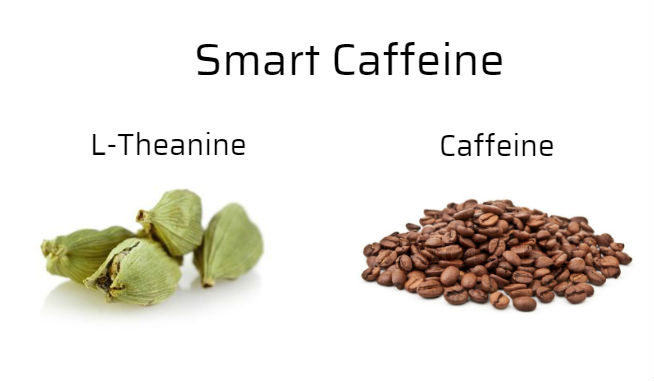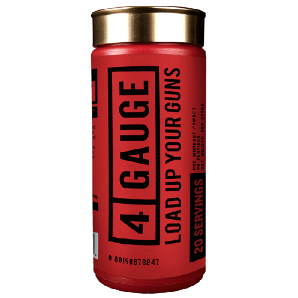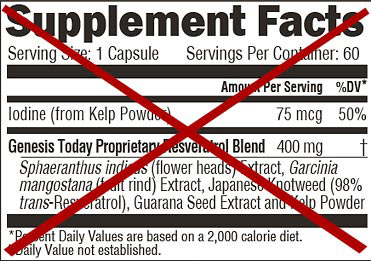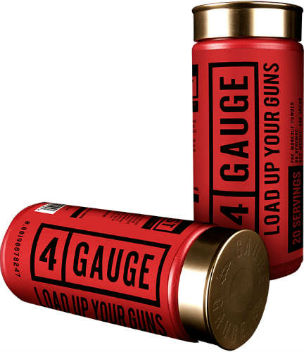We’ve been getting asked a lot about the strengths and weaknesses of pre-workout vs BCAA recently – which is understandable.
Let’s face it: there are so many supplements out there that it can be difficult to know where to start. So we thought we’d write this article to help you out…
What are BCAA – and why should you use them?
BCAA (or branched chain amino acids) is a term which refers to three amino acids: Leucine, Isoleucine, and Valine. These ingredients help your body synthesize proteins to do the following:
- Build and repair your muscles
- Reduce muscle soreness and delay fatigue
- Speed up recovery after intense exercise
- Maximize fat loss
BCAA combine to form muscle tissue. This protein synthesis allows your body to produce more insulin for your muscles to use as energy. Although your body produces BCAA, exercise diminishes your body’s stores of these amino acids.
When your body gets enough BCAA, you become better able to meet the increased workload and build more muscle. As the three main building blocks of your muscle, BCAA are the most anabolic of all amino acids.
What should you look for in BCAA?
For optimal growth, some research suggests you need more Leucine than Isoleucine or Valine. The story goes that lifters who add two times as much Leucine experienced much bigger gains.
The best-researched BCAA supplements use a ratio of 2:1:1 of Leucine to Isoleucine or Valine. You may see other BCAA with ratios of 4:1:1, 8:1:1, and 12:1:1. But as it stands, the only published medical research focuses on the 2:1:1 ratio.
When to take BCAA
You can take BCAA before, during, or after your workout, and consume 5-10 grams up to three times per day. If you want to gain a large amount of muscle, you could take a dose of BCAA when you wake up to help repair the muscles after a hard day’s work.
But the most important time to take your BCAA is around your workout – consume some before hitting the gym AND after you finish exercising.
Note: Do you already eat plenty of meat, eggs and other protein-rich foods? Then you may already be getting enough of the three amino acids in your diet and you may not need to take more in a supplement.
What are pre-workouts – and why should you use one?
You’ve probably guessed a pre-workout is a fitness supplement that you take BEFORE exercise. Pre-workouts are designed to:
- Raise your energy levels
- Increase focus
- Boost power, stamina, and endurance
- Give you more satisfying muscle pumps
- Reduce muscle soreness
When you take a decent pre-workout, you should feel more alert, focused and confident ready for your time in the gym.
By giving you all the benefits above, taking a pre-workout helps you push harder and longer to maximize results and minimize the damage to your muscles (and your body as a whole).
Say you’ve been at work all day and you’re little tired. You’d be forgiven for not wanting to hit the weight room after a long day in the office. But the best pre-workouts give you that extra push you need to power through and smash your targets.
Some supplements are branded as dual pre-workout/fat burners, or even pre-workout/test-booster hybrids. However, the hybrid nature of these supplements tends to dilute their power, so we recommend ignoring these. Instead, stick to a stand-alone pre-workout.
What should I look for in a pre-workout?
The top-three ingredients to look for in a pre-workout are Creatine, L-Citrulline Malate and Smart Caffeine. Read more about these ingredients below…
Creatine Monohydrate
Creatine is arguably the best-tested and safest ingredient in the supplement world. Vital to your ability to move and function, Creatine is fuel for your body – it increases strength, boosts focus, improves brain function, and enhances recovery.
L-Citrulline Malate

L-Citrulline Malate is a blend of L-Citrulline and Malic Acid. It’s an amino acid which helps dilate your blood vessels to send more vital nutrients to your muscles for more satisfying muscle pumps.
Malic Acid reduces the buildup of ammonia, which in turn reduces muscle soreness to help you push harder for longer.
Many pre-workouts cut corners by using L-Citrulline rather than L-Citrulline Malate – some brands even try to make out L-Citrulline is the better of the two.
But don’t listen. The blend of L-Citrulline and Malic Acid is a fearsome combination that boosts your performance. It gives you the push you need to complete more reps, make the best of your time in the gym and achieve better results.
Smart Caffeine

Smart Caffeine is a blend of Caffeine and L-Theanine. As an awesome stimulant, Caffeine boosts your focus, motivation, strength and energy.
The problem is too much Caffeine can make you feel jittery and anxious. This is where L-Theanine comes in…
L-Theanine is another amino acid which acts as a calming agent – and it enhances all the great stuff Caffeine gives you, while also removing that jacked up anxious feeling.
When to take your pre-workout
When it comes to taking supplements, timing is critical. Manufacturers’ instructions vary.
But on the whole, for best results and to ensure you get the most for your money, you should take your pre-workout at least 20-30 minutes before exercising.
See SupplementTester’s Highest Rated
Highest-Rated Pre-Workouts Here
What’s better – pre-workout or BCAA?
While both the best pre-workouts and BCAAs offer some of the same benefits (e.g. reduced muscle soreness) when you take them before hitting the gym, the two products are NOT the same.
BCAA help you build more muscle and preserve existing bulk, but they don’t affect your actual workout. By contrast, good pre-workouts boost your focus, stamina and endurance in the gym, so you’re able to complete 1-2 more reps per set and enjoy hugely satisfying workouts.
So while some brands tell you can use BCAA as a pre-workout, they won’t give you the weight-room boost that most lifters look for in this type of product.
So should I take BCAA or pre-workout?
Although some would say this depends on what you want to achieve, their different benefits might seem enough to recommend stacking pre-workout with BCAA.
But if you only have the budget for one of the two, we advise choosing a pre-workout. BCAA do one or two things very well, the best pre-workouts are multi-dimensional supplements that give you many of the same benefits, plus much more.
Why you may not need a BCAA supplement
Several common foods contain large enough amounts of BCAA and other amino acids to give you everything you need to build and maintain muscle. These include beef, chicken, eggs, beans, tofu and seafood.
In addition, the best protein powders also contain BCAA. So if you’re already taking protein and getting plenty of BCAA in your diet, there’s no reason to waste your money on a separate supplement.
On the other hand, pre-workouts tend to contain large amounts of ingredients that would be impractical to consume from food – at least in the right amounts.

See SupplementTester’s Highest Rated
Highest-Rated Pre-Workouts Here
Mixing BCAA with pre-workout
Some brands say you should only use a pre-workout that contains BCAA – but we disagree. Here’s why…
Watch out for proprietary blends

As in the case of the hybrid pre-workout/fat burners we mention earlier, most BCAA/pre-workout combos dilute the potency of their respective ingredients. As a result, a hybrid product doesn’t give the same benefits as a BCAA and pre-workout stack made up of two separate products.
You’ll find pre-workouts that hide their BCAA dosage and ratio info behind proprietary blends that don’t tell you what – or how much – you’re getting for your hard-earned cash. The brands behind these products will tell you they do this to stop others copying their ‘revolutionary formula’ – but don’t believe the hype.
Most of these blends contain BCAA alongside cheaper – and less effective – amino acids like Glycine. Proprietary blends are just a hollow marketing trick that allows companies to fill their products with cheap fillers and minuscule amounts of the better ingredients.
Do you really need to stack BCAA and pre-workout?
If for whatever reason you can’t enough BCAA in your diet, you may want to use BCAA and pre-workout together. In this case, we advise ignoring hybrid products in favor of BCAA and pre-workout stack made up of two separate products.
But if you do already get enough BCAA from protein-rich foods, save your money – you don’t need extra BCAA. If this is the case and you want more focus and energy in the gym, a pre-workout is all you need.
BCAA pre-workout side effects
The act of stacking BCAA and pre-workout is unlikely to cause any side effects. So the question of negative reactions largely comes down to the individual ingredients…
Branched-chain amino acids are generally safe to take as long as you stick to the recommended 5-10 grams.
However, in large amounts (40 grams and over in one day), BCAA can cause fatigue, nausea, headaches, and even loss of coordination.
The best pre-workouts are also completely safe to take and won’t cause any unwanted side effects. But many pre-workouts contain ingredients known to cause problems…
Common pre-workout ingredients to avoid
Beta-Alanine can cause itching and tingling sensations which many people find unpleasant. Niacin (or Vitamin B3) can cause rashes. This is especially true if you get enough of the nutrient in your diet from foods like lean beef, beans, nuts, or whole grains.
Meanwhile, Betaine and Choline can cause your breath and body odor to smell like rotten fish.
Synephrine (aka Bitter Orange or Citrus Aurantium) has been known to cause a range of serious heart conditions and even sudden death. This ingredient is usually used in fat burners, although you may also find it in pre-workouts.
Finally, we advise looking out for pre-workouts with too much Caffeine. We – and many lifters we speak to – find 150-200mg of Caffeine is enough to give you the extra energy you need to power through your workout. Any more than this could make you feel jacked up and anxious.
Conclusion: pre-workout vs BCAA
Pre-workouts and BCAA are different products. Pre-workouts are designed to help you push harder and longer in the gym, while BCAAs help you build and maintain muscle.
If you’re not getting enough BCAAs in your diet, we recommend getting more of them in a supplement, alongside a good pre-workout, for the best results in and out of the gym.
Only want one supplement? Here’s what you need to consider…
However, the best pre-workouts not only boost your focus, stamina, and endurance for amazing workouts and faster results. They also help reduce muscle soreness and prevent fatigue (two of the benefits of BCAA).
Plus, it’s pretty easy to get your fill of BCAA from your diet. Rich sources of these amino acids include chicken, fish, nuts and beans.
By contrast, pre-workouts contain many ingredients that it would be hard to get enough of in your diet.
So if you only want to use one supplement, the question of pre-workout vs BCAA is a no-brainer – you should go with a pre-workout every time.
4 Gauge by Roar Ambition
4 Gauge is the best pre-workout we’ve ever tried – bar none. It uses 100% natural ingredients, all of which are safe to use.
It helps you avoids common side effects like itching, headaches, body odor and hives by ignoring the likes of Beta-Alanine, Betaine, and Choline.
Instead, it contains more or less the optimal doses of L-Citrulline, Creatine, and Smart Caffeine to give you everything you need for the perfect workout and the best results.

